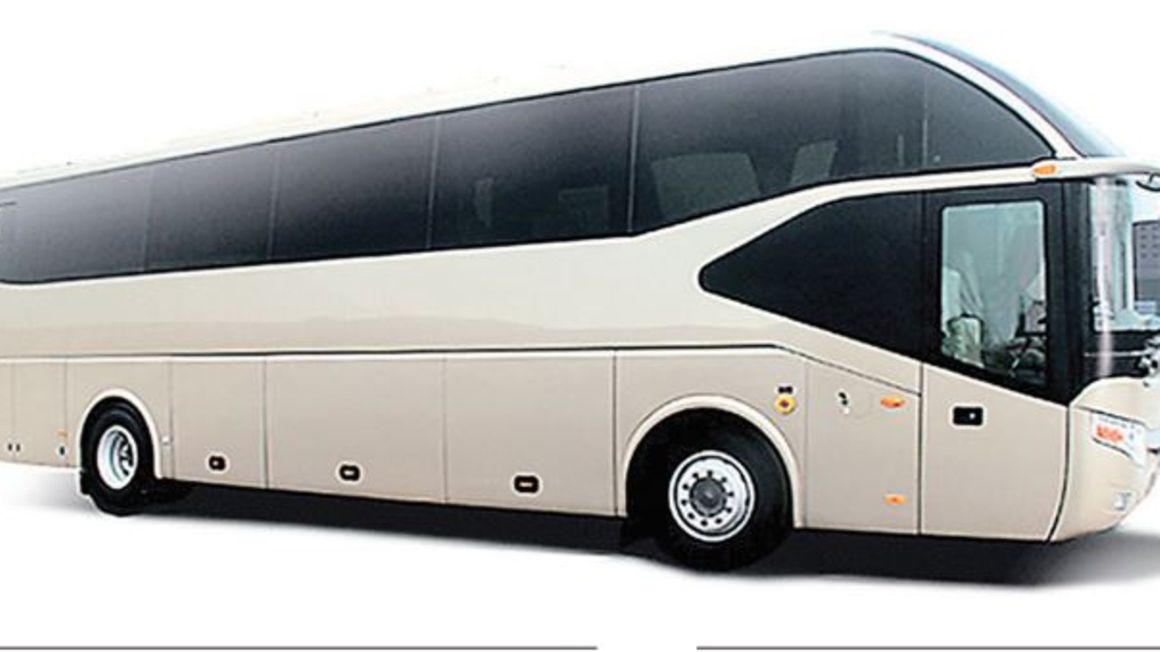
Dar es Salaam. With only weeks before the first phase of the Standard Gauge Railway (SGR) commences operations, bus owners are fine-tuning their operations by investing massively so they can remain in business despite the new challenges.
Passengers plying the Dar es Salaam-Morogoro route and beyond will be exposed to a new experience as operators have purchased 28 new model buses, worth more than Sh7 billion, which will see them improve in service delivery when the SGR officially starts in the coming few weeks.
The revelation by BM Coach, Abood ‘Happy Nation’ and Kibso passenger bus companies come at a time when Tanzania Electric Supply Company (Tanesco) says it was immediately unveiling 70MW of electricity to power the first phase of the Standard Gauge Railway (SGR), set to commence operations in a few weeks.
Energy minister Medard Kalemani told editors in Morogoro on Saturday that actual construction of power lines between Dar es Salaam (Kinyerezi) and Morogoro (Kingorwira) is complete and that the 70MW would be immediately availed to Tanzania Railways Corporation (TRC) as soon as it (TRC) gets ready to start plying its electricity-powered SGR trains between the two destinations (Dar es Salaam and Morogoro).
“We have invested Sh71.1 billion in building the necessary power infrastructure for the first phase of the SGR… The project is already done by 100 percent,” he said, detailing a number of other projects that the government has implemented in the energy sector.
Government spokesman Hassan Abbas said recently the Dar es Salaam-Morogoro section of the SGR will completed, and electricity-powered trains will start running this year.
Trains will move at 160-kilometers per hour, thus offering a formidable competition to buses between the two destinations.
But data collected by The Citizen show that BM Coach has bought 10 buses, Abood has also purchased 10 while Happy Nation has bought six whereas Kibso has procured two.
A director with BM Coach, Mr Baziri Makundi told The Citizen last week that the company has deployed new 10 buses which ply the Dar es Salaam-Arusha and Dar es Salaam-Dodoma routes via Morogoro as a pilot study.
“We have bought quality buses which are complete with toilets, electric heaters to boil tea water and refrigerators to cool drinking water and soft drinks.
“The buses also contain VIP seats whereby each seat has a television and passengers are free to watch movies or music on their own demand,” he said.
Mr Makundi said depending on the effectiveness of SGR and passenger demand, his company would increase the number of such new buses by this September.
Spokesperson for Abood Bus, Mr Thabit Awadi said even quality of what will keep them in business even after the commencement of operations of the first phase of the SGR.
“The ambitious strategy of the company is to ensure we buy new buses frequently. We have purchased 10 buses that are yet to arrive. The coming of new buses is to strengthen transport services but not to protect our business from competitors or SGR,” he stressed.
A manager for Happy Nation, Mr Thabit Mfaume said his company has procured six luxury buses that specifically be deployed on the Dar es Salaam-Bukoba, Dar es Salaam-Mwanza and Dar es Salaam-Arusha routes.
“The buses are already operating in respective routes and we expect to receive three buses in May. We are planning to introduce new routes depending on the congestion of people,” he said.
Last year SGR project manager SGR project manager Machibya Massanja said the project was not conceived with the intention of driving bus and truck operators out of business.
“SGR and road transport services will complement one another. In fact, business will rise sharply for bus operators,” he said.
The SGR is intended to replace the old, inefficient metre-gauge railway system and reduce road congestion. It is also expected to decrease freight costs by 40 percent.
Each freight train is expected to transport up to 10,000 tonnes, equivalent to 500 lorry-loads.
The project is being implemented in 5 phases: 202km Phase 1 (Dar es Salaam–Morogoro) Section, 348km Phase 2 (Morogoro–Makutopora) Section, 294km Phase 3 (Makutopora–Tabora) Section; 130km Phase 4 (Tabora-Isaka) Section, and 341km Phase 5 (Isaka–Mwanza) Section.




No comments :
Post a Comment